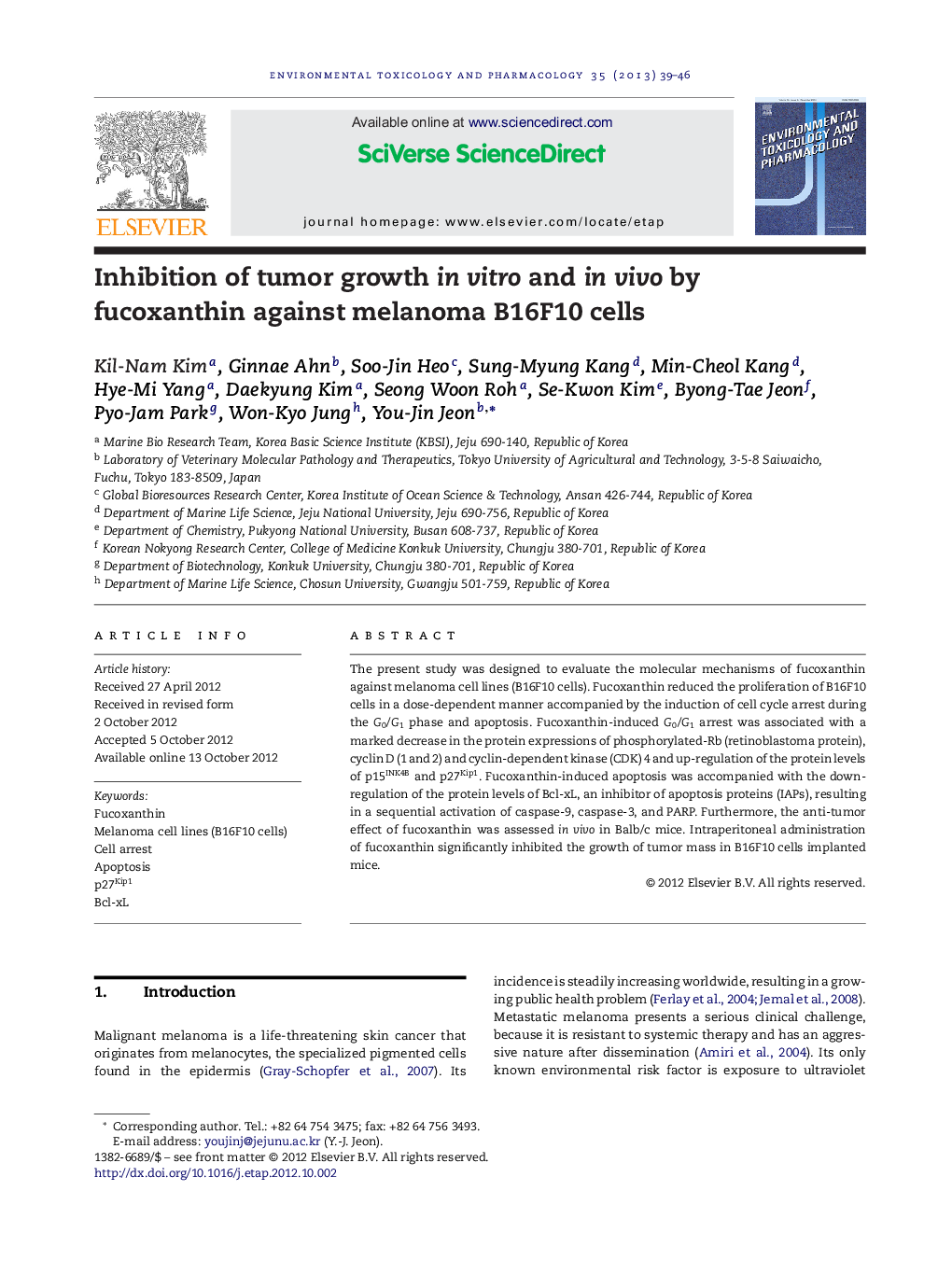| Article ID | Journal | Published Year | Pages | File Type |
|---|---|---|---|---|
| 2583318 | Environmental Toxicology and Pharmacology | 2013 | 8 Pages |
The present study was designed to evaluate the molecular mechanisms of fucoxanthin against melanoma cell lines (B16F10 cells). Fucoxanthin reduced the proliferation of B16F10 cells in a dose-dependent manner accompanied by the induction of cell cycle arrest during the G0/G1 phase and apoptosis. Fucoxanthin-induced G0/G1 arrest was associated with a marked decrease in the protein expressions of phosphorylated-Rb (retinoblastoma protein), cyclin D (1 and 2) and cyclin-dependent kinase (CDK) 4 and up-regulation of the protein levels of p15INK4B and p27Kip1. Fucoxanthin-induced apoptosis was accompanied with the down-regulation of the protein levels of Bcl-xL, an inhibitor of apoptosis proteins (IAPs), resulting in a sequential activation of caspase-9, caspase-3, and PARP. Furthermore, the anti-tumor effect of fucoxanthin was assessed in vivo in Balb/c mice. Intraperitoneal administration of fucoxanthin significantly inhibited the growth of tumor mass in B16F10 cells implanted mice.
► Inhibitory effect of fucoxanthin on the proliferation of melanoma cell lines (B16F10 cells). ► The G0/G1 phase cell cycle arrest and apoptosis were induced by fucoxanthin. ► Cell cycle arrest in G0/G1 phase was associated with upregulating the level of p16INK4A and p27Kip1. ► Fucoxanthin induced apoptosis by inhibition of Bcl-xL. ► Fucoxanthin suppressed in vivo growth of melanoma in Balb/c mice.
